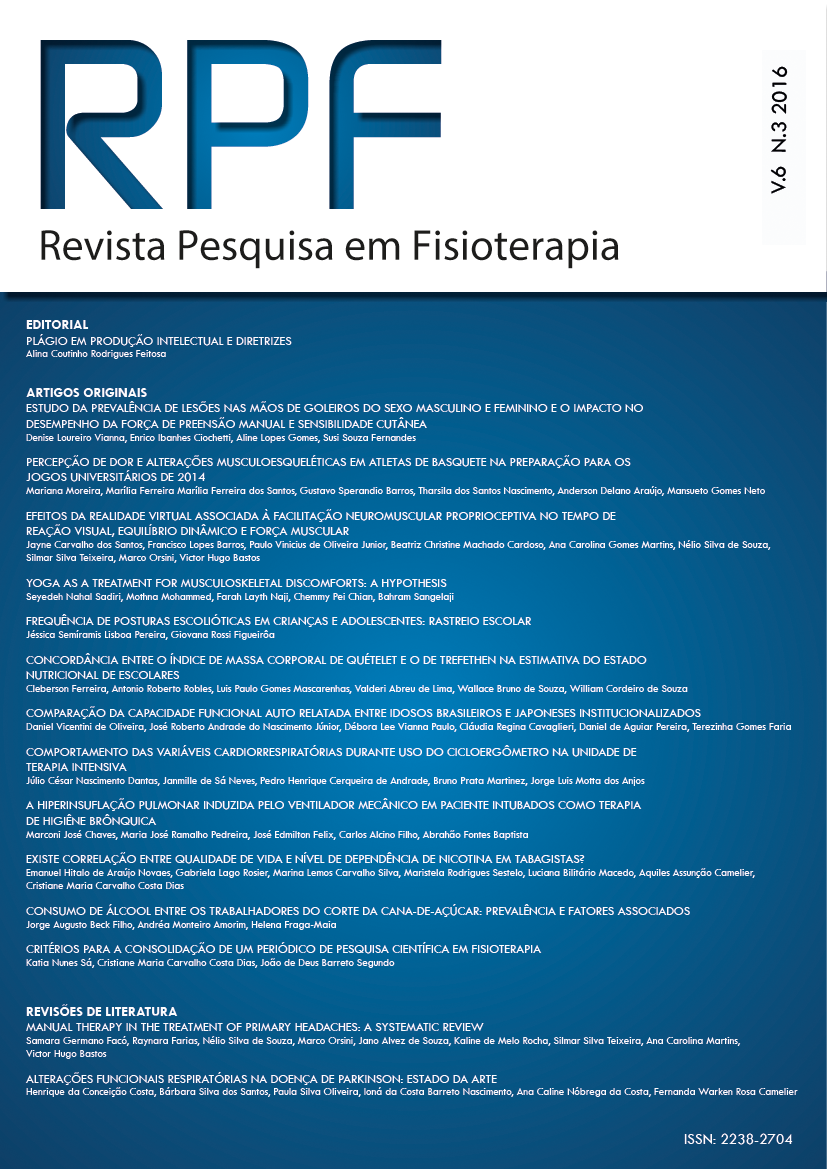COMPARISON BETWEEN SELF REPORTED FUNCTIONAL CAPACITY AMONG BRAZILIAN AND JAPANESE INSTITUTIONALIZED ELDERLY
DOI:
https://doi.org/10.17267/2238-2704rpf.v6i3.997Keywords:
Physical Activity, Elderly, FunctionalityAbstract
Introduction: Self reported satisfaction is included in the context of subjective evaluation and is highly influenced by functional capacity, as well as differences between sociocultural aspects. Objective: To compare the self reported functional capacity between Brazilians and Japanese institutionalized elderly. Material and Methods: The sample was chosen intentionally and for convenience, and was composed of 70 elderly of both genders, institutionalized, with a mean age of 75.5 (± 8.8) years, being 53 Brazilian, and 17 Japanese. To evaluate the functional capacity was used the Auto Sheet Assessment of Functional Capacity proposed by Spirduso (1995). Data analysis was done using descriptive and inferential statistics, and adopted the significance of p <0.05. Results: The Japanese elderly perform more Daily Activities (DA) alone and without difficulty. The Brazilian elderly accomplish more alone DA, but with difficulties, and more DA no ability to do without help. There was a significant association between the time of institutionalization and functional capacity. Conclusion: It can be concluded that institutionalized elderly Japanese have better functional capacity than the Brazilians, according to the self-perception of them and that the longer the time of institutionalization, the lower the functionality index.



